Note
Hi! If you don’t mind me asking what is up with the nicknames in the 1700s/1800s? Bc literally like Martha Washington JR was nicknamed “Patsy” and I don’t see how that works anyways love ya! <333
Hello. The simple answer is, colonists were weird with nicknames.
“Patsy” was a nickname for names like Martha and Matilda, like how “Polly” was a nickname for Mary. Oftentimes, M's were changed to P's, and a feminine suffix was added at the end. Additionally, the nicknames were usually an altered version of a nickname. So, it would roughly follow down the pipelines of nicknames like “Peggy” for “Margaret”; Margaret → Meg/Meggy → Peg/Peggy. Or Mary → Molly → Polly. Elizabeth → Beth → Betsey.
As you can see this with many figures like Margaret “Peggy” Schuyler, Martha “Patsy” Jefferson, Mary “Polly” Eleanor Laurens, Elizabeth “Betsey” Schuyler, etc, etc. It is similar with the nickname “Neddy”; Edward → Ed/Eddy → Ned/Neddy.
63 notes
·
View notes
Note
Husband??? Husband is???? Here???? <- Sopping wet teary eyes pathetic beast

17 notes
·
View notes
Note
hi ! i hope this isn’t too much to ask but i keep hearing abt philip hamilton and theodosia burr jr being inlove w eachother 🤨 and i rlly don’t know if this is true or not,, what’s ur opinion on it??
Answered here. Overall opinion; there is little to no evidence or material surviving about them or what their relationship could have been like. It is my assumption they, at the very least, heard of each other through their fathers or just public talk in general. Wether they were rivals, lovers, sounds more unlikely than anything—when they were probably just rather acquainted, as it would have been hard to not hear or see of the other with their fathers in close quarters and business throughout their lives. It is mostly fandom based, and the lack of records on Theodosia and Philip in general supplies even less room to analyze what unknown relations could have existed between them.
#amrev#american history#philip hamilton#theodosia burr alston#theodosia burr jr#phildosia#history#queries#sincerely anonymous#hamilton kids#hamilton family#hamilchildren#hamilkids#hamilton children
27 notes
·
View notes
Note
how did hamilton find out about lauren's wife?
By looking through a forwarded packet by Brigadier General William Thompson, containing letters from Manning to Laurens that Hamilton inclosed in a letter to him;
I anticipate by sympathy the pleasure you must feel from the sweet converse of your dearer self in the inclosed letters. I hope they may be recent. They were brought out of New York by General Thompson delivered to him there by a Mrs. Moore not long from England, soi-disante parente de Madame votre épouse. She speaks of a daughter of yours, well when she left England, perhaps ⟨– – –⟩.
“From Alexander Hamilton to Lieutenant Colonel John Laurens, [April 1779],” Founders Online, National Archives, https://founders.archives.gov/documents/Hamilton/01-02-02-0100. [Original source: The Papers of Alexander Hamilton, vol. 2, 1779–1781, ed. Harold C. Syrett. New York: Columbia University Press, 1961, pp. 34–38.]
“Dearer self” is meant to refer to his wife.
#amrev#american history#american revolution#alexander hamilton#historical alexander hamilton#historical john laurens#john laurens#martha manning laurens#martha manning#history#queries#sincerely anonymous#cicero's history lessons
41 notes
·
View notes
Note
have been scrolling through your blog and reading everything for like 30 minutes now, very fascinating! thanks!
It's a bit lacking in new content, but glad to hear it <3
17 notes
·
View notes
Text

Happy pride month from some fancier-than-my-usual corner of the 1770s!
6K notes
·
View notes
Note
hi! hru? you havent posted in a while
Unfortunately, adulting is quite taxing.
#My motivation also just depleted as did my interest in Amrev#This isn't some glorious return I will probably disappear again by tomorrow#queries#sincerely anonymous#not history
12 notes
·
View notes
Text
The anecdote was told to Chronicler John Fanning Watson by Timothy Pickering who was apparently present at the scene. Which he then wrote of it in 1853, the full quote being;
General Washington was extremely punctual. His cabinet councils were appointed to meet him precisely at eleven o'clock on set days. On such occasions General Hamilton was usually latest and after the time; then he would bustle, and drawing out his watch exclaim it had deceived him. This occurred a number of times, when the General effectually prevented it, by rising and looking firmly on General Hamilton and saying, “Sir, you must provide yourself a new watch, or I a new Secretary.” I had this from Col. Pickering, who was present.
Collections of the Historical Society of Pennsylvania. United States, John Pennington, 1853.

I received this in the newsletter from Mount Vernon and I thought that I should let it get some love on tumblr
#amrev#american history#alexander hamilton#historical alexander hamilton#george washington#timothy pickering#john fanning watson#history#reblog#founding fathers
765 notes
·
View notes
Photo
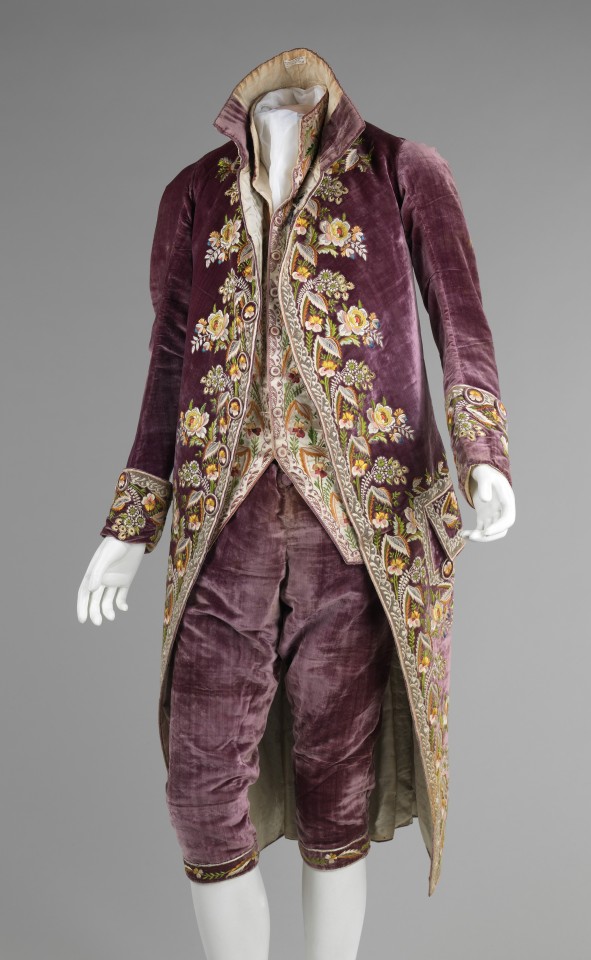
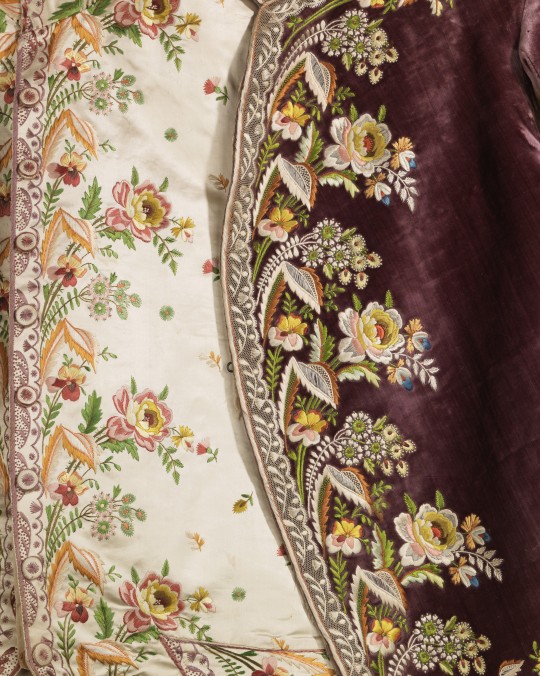
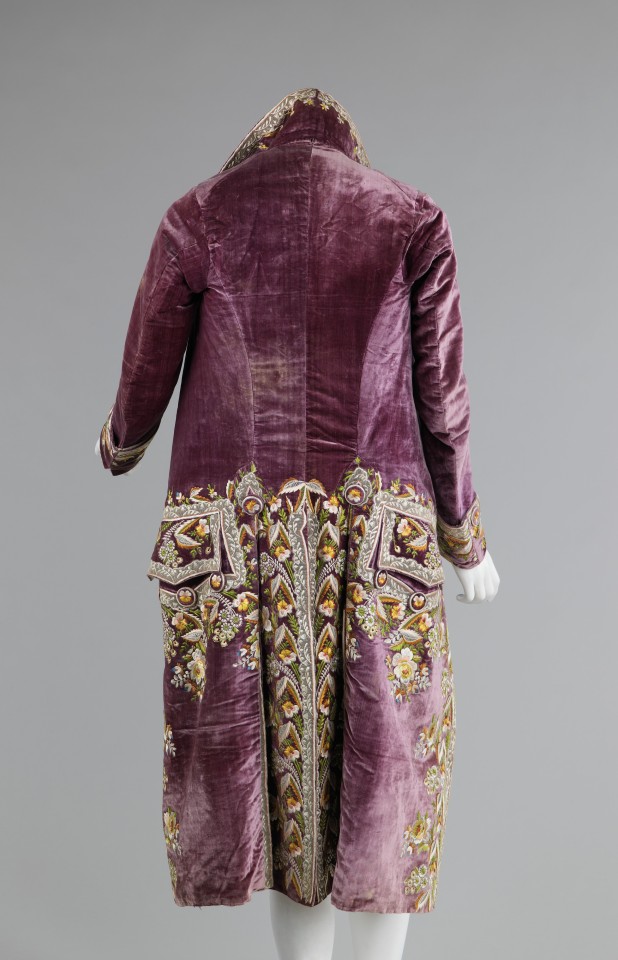
Court Suit
c.1810
France
This three piece suit is exemplary of skilled French embroidery and the silhouette of men’s court wear during the time of Napoleon Bonaparte (1769-1821). Bonaparte revived the importance of court traditions when he crowned himself Emperor in 1804. This revival necessitated the recreation of acceptable court dress, which had been defunct since the elaborate and costly court of Louis XVI (1754-1793) prior to the French Revolution. The intricate embroidery pattern is intriguingly mimicked between the waistcoat and coat, reinforcing its status as a full suit. (The MET)
The MET (Accession Number: 2009.300.1001a–c)
2K notes
·
View notes
Text
After the evening meal, a walk was proposed round the grounds, when her attention was attracted by a beautiful bower entwined with the most luscious honeysuckle. They told her it was a favourite retreat of Mrs. Hamilton, as it had been planted by her husband, and that even a deranged daughter knew and loved it as the frequent haunt of her beloved father.
Sloane, Eric, and Anthony, Edward. Mr. Daniels and The Grange. United States, Funk & Wagnalls, 1968.
A tourist at the Grange - who only identified herself as ‘Mrs. Q’ - visited in the hopes to speak with Eliza. Although, since she wasn't home, the Hamiltons' children had given her a tour after welcoming her inside. It was said then that Hamilton's favorite spot to sit in his past time was in his garden, beneath “a beautiful bower entwined with the most luscious honeysuckle” that he planted. Similarly, it was also Eliza's and their daughter Angelica's favorite.
#amrev#american history#alexander hamilton#historical alexander hamilton#elizabeth schuyler#elizabeth hamilton#angelica hamilton#history#hamilchildren#hamilton family#hamilton children#hamilkids#hamilton kids#cicero's history lessons
59 notes
·
View notes
Text

Somebody should tell him that is not a profession or career path
#“dad-defending” Dear God#John had plenty of opportunities due to nepotism but decided to just sit and be his father's white knight for a living
51 notes
·
View notes
Text
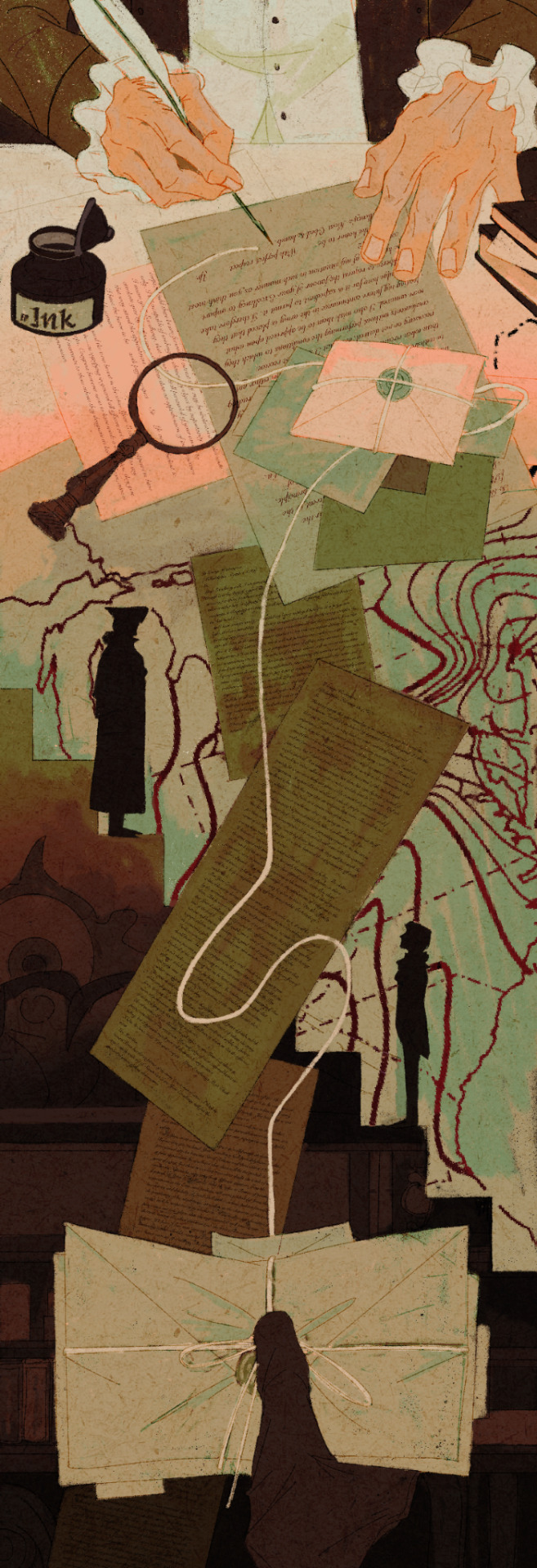
#amrev#american history#american revolution#alexander hamilton#historical alexander hamilton#george washington#reblog#art#not my art
339 notes
·
View notes
Note
Do eleborate
After Henry decided to take his three boys, Harry, Laurens, and Jemmy to Europe for their education, Jemmy seems to have caught small pox. After recovering he reportedly gained some noticable weight reported in a letter from Henry Laurens to Peter Nephew, [December 20, 1771];
My Sons, thank God, are very well. I wish this may find you and your family as well, and that you may long continue so. Your Acquaintance Jemmy is now scribbling by me. He has pass'd safely through the Small Pox and is now as fat as a little Pig. He desires me to give his best Compliments to Mr. & Mrs. Nephew, and thank them for their kindness to him when he was in Distress.
Laurens, Henry. The papers of Henry Laurens. United States, University of South Carolina Press, 1968.
(Italics are mine)
#After calling Laurens a monkey Henry certainly had some ‘interesting’ nicknames for his kids#amrev#american history#henry laurens#jemmy laurens#laukids#laurens siblings#laurens family#history#letters#queries#maip macrothorax#cicero's history lessons
30 notes
·
View notes
Text
The fist-clenched defensiveness of Hamilton's sons reveals the power of these dueling histories. Sons shared in the disgrace of their fathers; hence the many filiopictistic memoirs written by sons eager to protect their family honor. James and the younger Alexander Hamilton even competed with each other to defend their father's name. Biased, personal, partisan, and focused on honor and reputation, these histories perpetuated the political feuds of decades past, embroiling the second generation in the process. Their father a virtual lightning rod for attacks on the defunct and seemingly corrupt Federalists—Federalist talk of secession in 1804 and 1814 tarring them as traitors as well-several second-generation Hamiltons almost fought duels in his defense.
Freeman, Joanne B.. Affairs of Honor: National Politics in the New Republic. United Kingdom, Yale University Press, 2002.
While I'm not going to delve into the dueling side of things, I think Hamilton's sons are a great example of the possible bias or questionable truth you'll usually encounter when researching what may seem like primary or firsthand sources. While James's memoir and John C.'s biographies touch up on more personal topics, or even initially unknown sentiments and/or events—It is more than likely they're going to be bias in their father's favor and it won't be the cut clean truth. As Willard Sterne Randall has commented that JCH; “introduced a plethora of errors into the historical record.” [x] In James's memoir, he argues against the rumor that Hamilton sympathized with the 1803-4 Secession Movement, and repeats the “To break this Union would break my heart” quote, [x] but cites his own brother's work, John's biography of their father for “other evidences of his disapproval of dismemberment.” [x] (Smart, real smart) So, don't exactly believe everything you read from what you may even assume are “primary sources”.
#Also Allan McLane and the gum tree story that was false#amrev#american history#alexander hamilton#historical alexander hamilton#john church hamilton#james alexander hamilton#history#19th century#hamilchildren#hamilton family#hamilton children#hamilkids#hamilton kids#cicero's history lessons
30 notes
·
View notes
Text

Hamilton stop exploiting your kids for your law practice
#/j#I mainly make this joke because of the papers he made JCH copy as ““school”” during the Adams administration
34 notes
·
View notes
Text
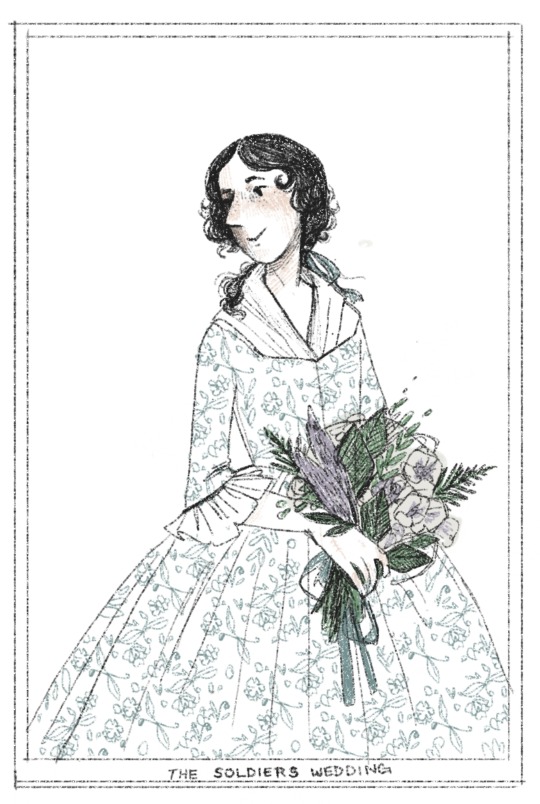
Continental Army Pvt. Deborah Sampson Gannett in her wedding dress, 1785.
(aka I can't stop collecting gender non-conforming 18th century New Englanders, and got really excited when I realized a gown I'd saved as reference on Pinterest was, in fact, her wedding dress).
363 notes
·
View notes